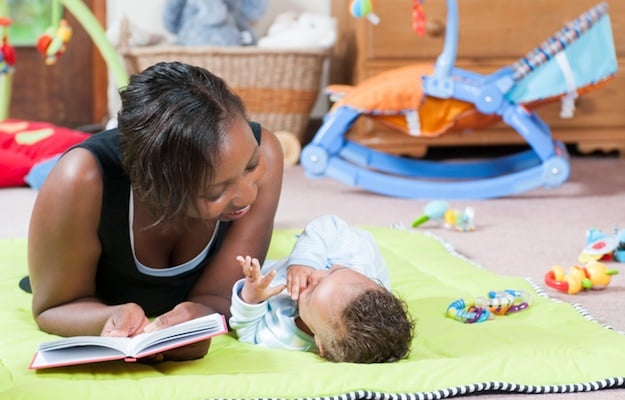
It has become the norm, in our modern lives and modern society where both parents often work outside the home, for a portion of our child-rearing responsibility to fall to an outside source. This will usually take on the form of a nanny, domestic worker, a childminder or day care.
It is estimated that over 7 million people living in South Africa are HIV positive. That statistic, combined with the number of parents reliant on external childcare, would naturally lead us to wonder about our rights to know someone’s HIV status.
Do you have a right to know their HIV status?
The short answer is no. You do not have a right to know. It is a well-known and well-documented fact that sharing of one’s HIV status is a personal choice. By law, no-one is required to disclose their status, although recently the Health Professional Council of South Africa made one exception:
The National Health Act makes an exception to the rule of confidentiality if non-disclosure of a patient’s personal health information would pose a serious threat to public health.
The HPCSA's Ethical Guidelines for Good Practice with Regard to HIV (2008), states: "HPCSA guidance states that, for disclosure to be justified, the risk of harm to others must be serious enough to outweigh the patient’s right to confidentiality. If you judge that this is the case, you should attempt (if it is safe and appropriate) to obtain the patient’s consent first, but should go ahead with disclosure to the appropriate authorities if this is not forthcoming."
Being a childcare worker is not considered part of the exception. However, Dr Sindi Van Zyl, who is a patients' rights activist and loves using social media to teach about HIV, assures that the risks of infection via a childcare worker is negligible. She says that in order for infection to occur, one would need to have many open cuts and open wounds on your hands and fingers for such a transmission to occur.
Dr Sindi also goes on to say that HIV is primarily transmitted via sexual intercourse. It is not transmitted via casual contact or sharing utensils or toilets.
So you suspect your childcare worker is HIV positive, now what?
While you may be uncomfortable or concerned, educating yourself and taking the necessary precautions are key. Dr Sindi assures us that your family and children are not at risk of HIV acquisition.
She adds that in the health profession, they practise universal precautions. This means they wear gloves and take the necessary precautions when handling any bodily fluids, especially blood. This is a good habit to teach your family. Make sure that you have first-aid gloves at home for such situations – these are inexpensively and easily purchased from your local pharmacy.
What are the "Universal Precautions for The Prevention Of The Transmission of HIV"?
The Centres for Disease Control and Prevention, stipulates these measures:
1. Take care to prevent injuries.
This refers to needles and scalpels, but will also apply to knives, scissors and razor blades at home. Be cautious when handling and cleaning these sharp implements and ensure they're always stored away from little hands.
2. Use protective barriers.
When handling a bloody knee or helping to clean an open wound, wear protective gloves to prevent exposure. This applies to blood but also body fluids containing visible blood, and other fluids to which universal precautions apply.
3. Immediately and thoroughly wash hands and other skin surfaces that are contaminated with blood, body fluids containing visible blood, or other body fluids to which universal precautions apply.
Educate yourself and be supportive
Dr Sindi also goes on to say that if your childcare worker discloses their HIV status it is probably because they will need to go to the clinic for check-ups and to fetch treatment. Be supportive and educate yourself on the effects of treatment, of which there are many, but the most common ones include diarrhoea, dizziness, fatigue, nausea and vomiting.
Ultimately, whether your childcare worker is HIV positive or not, the most important thing is to respect their right to privacy and nondisclosure while being supportive and educating yourself about the virus and the necessary precautions.
You can follow Dr Sindi on social media for more of her HIV insights and education here:
Twitter: @DocSindi
FaceBook: DocSindi
Also read:
HIV-positive nanny? Know her rights, know your rights
FAQs around your nanny and HIV
Why you can't just fire your domestic worker
Building a good relationship with your child's nanny
What is the minimum wage for nannies and domestic workers?
Nannies and domestic workers: contracts, salaries and UIF
Don't let your childcarer breastfeed your baby
Do you know or think your child's nanny or teacher may be HIV positive? Does it worry you or do you realise that transmission is highly unlikely? Have you heard of anyone dismissing their childcare worker for suspecting or finding out that they're HIV positive? Please send your stories to chatback@parent24.com and we may publish your letter – anonymously.




 Publications
Publications
 Partners
Partners










